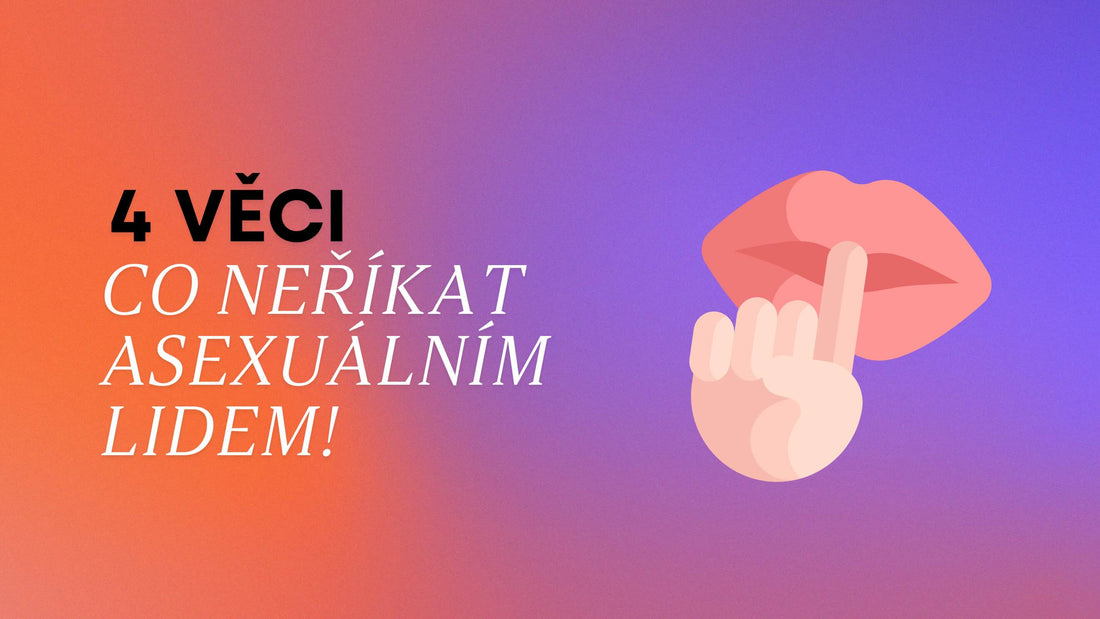
Asexuality: The most common myths and what to (not) say to asexual people
Share
Although asexuality is a fully-fledged sexual orientation, it is not talked about much in Czech circles and is even surrounded by various myths. What are they and what should we avoid when talking to asexual people?

1. "So you're frigid?"
Frigidity and asexuality are two different things. Frigidity is a sexual arousal disorder in people with a vulva , meaning that the person experiencing it is unable to become sexually aroused. (However, people with a penis can also experience this problem.) At the same time, it can affect anyone, regardless of sexual orientation.
In contrast, asexuality is defined as having little or no sexual attraction to others . However, this does not mean that an asexual person cannot experience sexual arousal or satisfaction from masturbation or sex.
2. "You haven't met true love yet."
First of all: Does all love have to do with sex? Absolutely not: We can love parents, siblings, children, pets in a non-sexual way...
And also partnerships. There are many asexual people who feel no sexual attraction, but that doesn't mean they can't feel romantic attraction. But there are also people who form close non-sexual and non-romantic relationships outside the family that resemble those of partners, but are quite different. We call them so-called queerplatonic .
3. "How can you live without sex?!"
There are indeed asexual people who don't want sex and it doesn't bother them in the same way that some people don't mind not eating meat or watching TV. It's just not something we all have to like or necessarily need to live with.
However, some asexual people do engage in sex: They may be people in the sex industry (for example, former porn actress Lana Rhoades ); some enjoy sex, although they generally feel little or no sexual attraction to people ; some are indifferent to sex, but their partner likes it, so from time to time they decide to please him/her... There are many possibilities.
4. "I know this: My sex drive went down after the medication, so I'm asexual too."
As we said above, asexuality is not related to libido , but to sexual attraction. If we have a low sex drive but are still sexually attracted to people, we are not asexual.
Can sexual orientation actually change over the course of a lifetime? Research shows that many people do indeed experience changes in their sexuality over time, although it focuses more on allosexuals than asexuals. However, that is a topic for another article.
